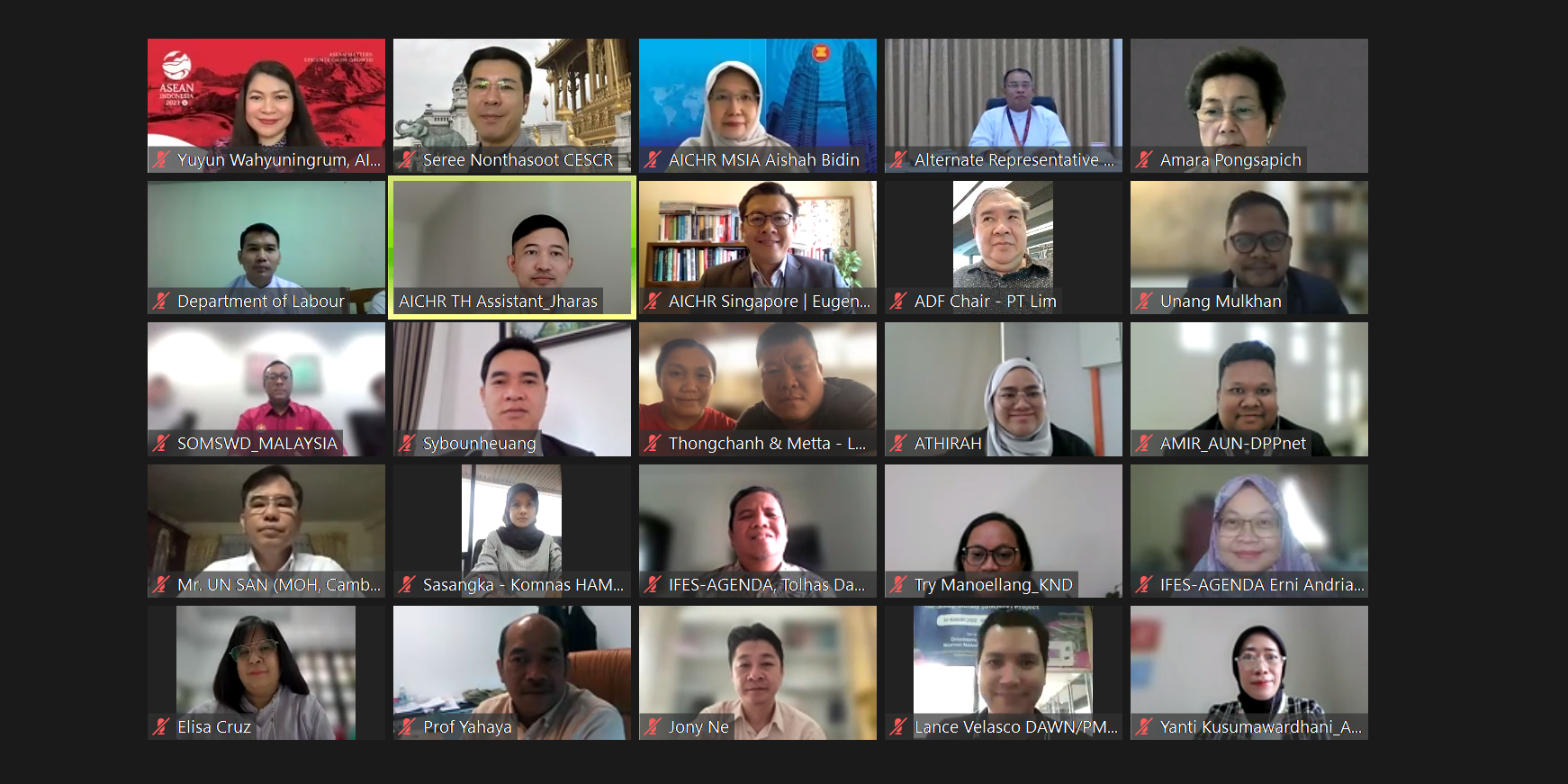
AICHR, regional stakeholders track progress on disability inclusive recovery

BANGKOK, 10 March 2023 – The ASEAN Intergovernmental Commission on Human Rights (AICHR) held the AICHR Regional Consultation on Achieving Disability Inclusive Recovery via videoconference on 8 March.
With over 60 participants in attendance, the meeting served as a platform for consultation among the AICHR and ASEAN sectoral bodies, persons with disabilities, civil society organisations, national human rights institutions, and relevant stakeholders to track the implementation progress of the ASEAN Enabling Masterplan 2025: Mainstreaming the Rights of Persons with Disabilities (EMP 2025).
Delegates from the ASEAN Senior Officials Meeting on Social Welfare and Development reported on the implementation progress of EMP 2025 in the areas of capacity-building to mainstream the rights of persons with disabilities across three pillars, the support from ASEAN Member States’ to identify entry points, alignment and complementation of EMP 2025 focusing on gender equality, and the work being done to address the root causes of social injustice and discrimination. The work plan for the EMP 2025 midterm review for 2023 was also presented.
The panel discussion focused on the ongoing midterm monitoring and evaluation of the EMP 2025. The discussion also highlighted disability intersectionality and the achievements on mainstreaming the intersectionality of disability and gender with disability and sustainable cities.
The participants stressed the need to continue with a convergent approach in mainstreaming the rights of persons with disabilities, which is a cross-cutting issue, through strategic programmes by ASEAN sectoral bodies and entities across the three Community pillars.
In his keynote address, member of the UN Committee on Economic, Social and Cultural Rights and former Representative of Thailand to AICHR, Dr. Seree Nonthasoot highlighted that persons with disabilities are rights holders who are facing more severe barriers than others. While the possibility of a pandemic situation was not considered when the EMP 2025 was developed, the principles of inclusion and sustainability contained therein extended to the pandemic situation. Dr. Nonthasoot emphasised the need to look at the barriers experienced by persons with disabilities to make the region more inclusive.
Representatives from organisations of persons with disabilities in the region also collectively presented concerns and recommendations. On connectivity, they highlighted the importance of internet access and the ability to move and perform daily activities.
The representatives also raised concerns of people with disabilities who experience intersectional barriers to their inclusion and rights. As the 2030 Agenda calls for the empowerment of persons with disabilities, particularly women and children, the need for acceleration of efforts to ensure disability inclusivity is underscored.
The consultation was hosted by AICHR Thailand in collaboration with the ASEAN Disability Forum, the General Election Network for Disability Access, and the Australian Human Rights Commission.
###
